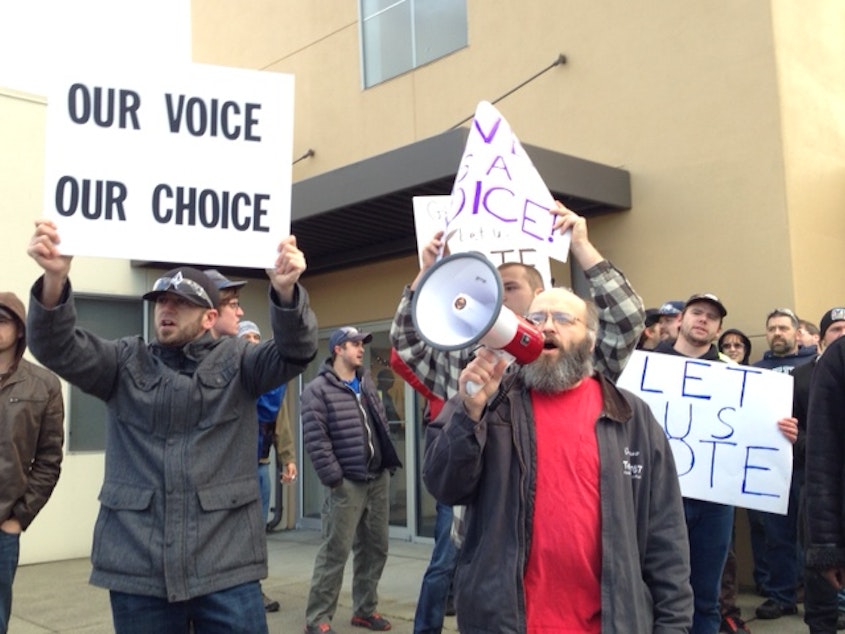New Households In King County Are Rich Or Poor – But Not Middle Class

Earlier this month at an economic conference, King County Executive Dow Constantine made a startling point: Less than 5 percent of the households added to King County since the year 2000 were middle income.
Middle income means having a household income of $35,000 to $125,000 a year.
It's a wide salary range, but fewer than 4,000 new families in the county could fit it. And of the other households, there were slightly more poor families than richer families. Despite Seattle’s strong economic recovery, the middle class is struggling to get and keep a foothold.
Here are some reasons why:
Structures that protect middle income earners – like unions – are breaking down. For example, the local Machinists. Boeing has traditionally had a solid middle class workforce. The company pension was its cornerstone - a guarantee of security.
Sponsored
Then just over a year ago, Boeing threatened to axe 20,000 local jobs unless workers agreed to give it up. In the weeks before the final vote, two generations of workers argued over what form of security was more important: the pension or the jobs. You could hear the old solidarity falling apart.
Machinist Billy Cox said the young generation didn’t understand the value of keeping what the union had fought for.
“In my opinion we became complacent, that is why we are falling back now,” he said. “And hopefully, seeing the minimum wage people struggle will give us a snapshot – ‘Hey, we could be there one day too.’”
The Machinists’ new president, Jon Holden, said the union's job is even more difficult today – because the employer played hardball.
“We were negotiating during the life of an agreement, so that’s new tactics,” Holden said. “We have to prepare our members for that again.”
Sponsored
Boeing says it has to play hardball to compete in a global market. A lot of employers say the same; they need to cut costs and increase flexibility. This is another reason why the middle class is under pressure.
The recession made this worse. The state Employment Security Department reports that after 2008, many middle income jobs that paid up to $70,000 a year disappeared.
The jobs that eventually came back were fewer and paid less. Which brings us to yet another reason why middle class security is under attack in our region: A lot more work is temporary.
The state’s Employment Security department says the contractor class is among the fastest growing in the region. But that doesn't guarantee middle class security. Microsoft says it plans to end its contracts with thousands of workers by the end of the year. The announcement came amid a reorganization designed to keep the company competitive. These workers will have to wait half a year before they can work for Microsoft again.
Microsoft practically invented the permatemp. Now the permatemp ranks will dwindle.
Sponsored
This is how middle class life erodes. First people do without benefits and security. Then one day the access card doesn't swipe the company door.
Rennie Sawade knows the drill. He's been working as an IT contractor for years.
"It's not a life that I thought I was going to have," he said. This year is going to be tight. “There are going to be more people competing for those jobs.”
Contractor wages will probably fall. Sawade is a middle-aged man with a family. He’s had to drain his retirement savings to cover times when he couldn’t find work.
“I try not to think about retirement. I just don't have one. I'm going to be doing this until they put me in the ground I guess,” he said.
Sponsored
Sawade met a reporter at a coffee stand near his temporary job. A week later, he was looking for work again.
